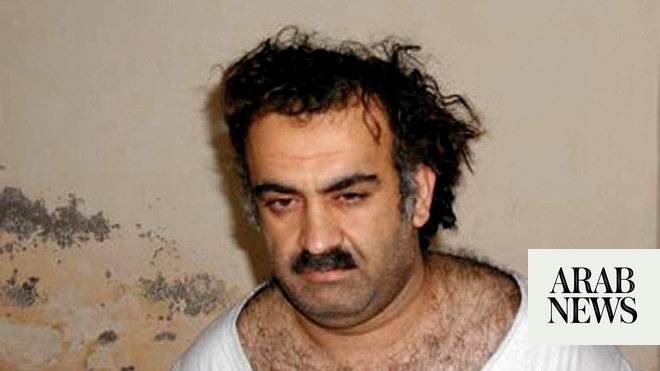DHAKA, Bangladesh: Bangladesh held a day of mourning on Tuesday to remember more than 200 people killed in recent weeks in violence sparked by student protests over the government's job quota system in the South Asian country.
After weeks of peaceful student protests seeking changes to a system that reserves 30 percent of government jobs for families of war veterans and freedom fighters during the 1971 war of independence from Pakistan, violence erupted on July 15 when activists from the ruling party's student wing attacked protesters. Security forces fired tear gas and rubber bullets in an attempt to quell the violence.
The quota protests are the most serious challenge for Bangladesh's government since Prime Minister Sheikh Hasina won a fourth consecutive term in elections in January, which the main opposition has boycotted.
The ruling Awami League and the opposition Bangladesh Nationalist Party have often accused each other of fueling political unrest and violence, most recently ahead of elections that were marred by a crackdown on several opposition figures.
Government officials, including those from Bangladesh's top secretariat, which houses most of the country's ministers and civil servants, wore black patches on Tuesday to mourn those killed in the violence.
Bangladesh has been gradually returning to normalcy, easing strict curfew measures in recent days. Authorities have also asked mosques, temples and other religious sites to hold special prayers for the deceased on Tuesday.
Later on Tuesday, Hasina visited a government hospital in Dhaka where many injured were being treated. She asked the hospital staff to provide the best possible care.
On Tuesday, 31 cultural groups attempted to hold a procession in downtown Dhaka to denounce the deaths in the violence, but were blocked by police. No violence was reported as singers and other activists sat on the streets and continued their peaceful protest amid a tight police blockade.
Home Minister Asaduzzaman Khan put the death toll at 150, while the country's leading Bengali newspaper Prothom Alo reported that 211 people had been killed since the violence erupted on July 15, with thousands injured.
Media reports say around 10,000 people have been arrested in the past two weeks following clashes between protests and attacks on state property. Human rights groups have called for an end to arbitrary arrests, and critics have accused the government of using excessive force to quell the violence.
“The mass arrests and arbitrary detention of student protesters is a witch hunt by the authorities to silence anyone who dares to challenge the government and is a tool to perpetuate a climate of fear,” Smriti Singh, Amnesty International’s South Asia director, said in a statement on Monday.
“The report says these arrests are entirely politically motivated in retaliation for the exercise of human rights,” Singh said.
The government has defended its stance, saying the arrests were made on specific charges and that it had reviewed CCTV footage and other evidence.
Six protest coordinators detained by the Dhaka Metropolitan Police's Investigation Division issued a statement calling for an end to the protest, but other protesters rejected the video statement, claiming it was coerced.
They said they would protest until all their demands, including a public apology from Prime Minister Hasina, were met.
Police said the six coordinators were detained for safety and their families met them on Monday. A video was posted showing the six coordinators having dinner with Dhaka City Chief Investigation Officer Harun-or-Rashid.
Human rights activists are calling for the release of the six so they can be returned to their families.
The protesters have no single leader, although the movement has several coordinators across the country. A press release purportedly from one coordinator, Abdul Hannan Masoud, called for protests on Wednesday at educational institutions, courts and major roads. The release could not be independently verified.
Bangladesh Law Minister Anisul Huq said on Tuesday that the government would ban the Jamaat-e-Islami party and the Islami students' group. Chatra Shibir Hasina and several other cabinet ministers have accused the party and students of involvement in violence during student protests.
The 14-party alliance led by the ruling Awami League has decided that the Jamaat-e-Islami party and its student wing should be officially banned on Wednesday, Huq said, but details of the ban were not immediately available.
The party was a coalition partner of the Bangladesh Nationalist Party led by former Prime Minister Khaleda Zia, Hasina's arch-rival, from 2001 to 2006. The party campaigned aggressively in support of the Pakistani military and against the 1971 independence of Bangladesh.
Protesters say the 30 percent quota is discriminatory and benefits Hasina's supporters, whose Awami League party leads the independence movement, and are calling for it to be replaced with a merit-based system.
On July 21, the Supreme Court ordered the reduction of the quota for veterans from 1971 to 5 percent, with the remaining 93 percent of government jobs to be performance-based, while the remaining 2 percent would be reserved for members of minority ethnic groups, transgenders and persons with disabilities. Two days later, the government accepted the ruling and pledged to comply with it.
The status of the 1971 veterans remains a contentious issue in Bangladesh, as the quota also applies to women who were raped by Pakistani soldiers and their allies during the independence war, as well as their children. These women are regarded as “freedom fighters” for the ordeals they endured. Hasina's father, Sheikh Mujibur Rahman, was a leader of Bangladesh's independence movement.
Broadband and mobile data services resumed on Tuesday after days of internet outages, but social media platforms including Facebook remained blocked. Banks and offices were open under relaxed curfews, while schools and other educational institutions were closed with no date set for reopening as police continued to fight protesters.
